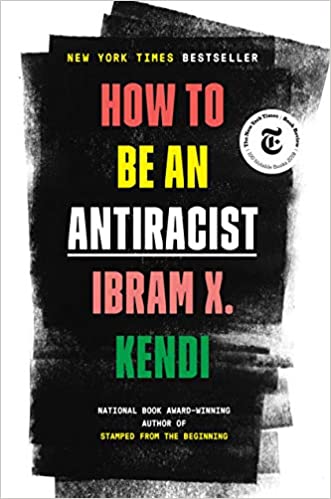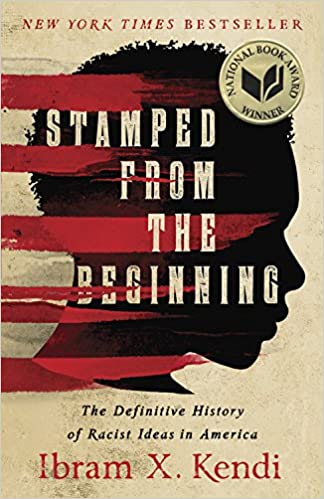Ibram X. Kendi – How to Be an Antiracist Audiobook
Ibram X. Kendi – How to Be an Antiracist Audiobook

How to Be an Antiracist Audiobook
text
As a fourth-grade student, I still remember the bizarre start to my college day. Our educator divided us into two teams: those with lighter hair and those with darker hair.
As part of the lighter-I had a few hairy children. to As the others did their homework, you sat in silence while your instructor dealt with them.
It was perplexing and irritating and taught me a lesson I will never forget. One of the darkest.-In the end, haired children understood that this wasn’t right and they said something. Ibram X. Kendi – How to Be an Antiracist Audiobook Free. The educator then stopped the experiment and informed us that we would be learning about Martin Luther King Jr. as well as the concern for racism.
KendiThe debate is very basic. A suggestion, action, or plan that could be considered racist is not racist. to A background that considers and treats different races as naturally unjust – or is antiracist due to to The fact that it is trying to This background must be removed. There is no place in between. It is impossible to be pure in anti-racism or racism.-Racism: People of all races and histories can be included in either category based on their actions, ideas or policies.
The simplest point is to Refer to In KendiHis theory of bigotry and inequality is in agreement with other current publications. He also attacks the idea that he is “not racist”. It is not necessary to do scholarship to Understand that Trump’s Head of State claims that he isn’t racist but uses multiple racist slurs. Some British journalists take great offense at being called “racist” while advertising tropes regarding ethnic minority communities. This exposes the absurdity of being “not racism”. Everyone says they’re not racist. There are a few things you can do to help yourself.-Identity as “antiracist”
Antiracism takes effort. Kendi He actually stated in his past job that he doesn’t believe that racism is a result of ignorance. History shows that racism is a result of the economy’s profitability and energy. It is both rooted in patriarchy and industrialism. It is necessary to recognize what he refers to as “the metastatic cancer”, which has seen “racism infect almost every part of the body political”.
Kendi digs deep to These analogies do not deserve to be made. He not only charts his personal journey, but also his family’s acceptance of racist notions.-Stage cancer that destroyed his body after he had completed his last breath. bookThe acclaimed Stamped was a hit from the beginning. “Racist thoughts piled up prior to “I am like trash at a landfill,” he says. “Tens upon countless pages of Black people being trashed, as natural or supported monsters and evil ones, pets rapists, slaves… More that five hundred years worth of hazardous concepts on Black bodies.” One factor Kendiwhose spouse also survived cancer cells just a few days before to He was diagnosed with cancer, and apologizes for his failure. to There are many types of cancer, as well as bigotry. There is not enough demand. His sincerity in connecting personal battles to This is only one component of this powerful, engaging story. book.
In other ways Kendi He answers more questions than he raises to. Stories about his dad and mom, that were fulfilled in the black freedom movement, prior to His mommy ran off to It is difficult to feel fulfilled in your missionary work in Liberia. Although he acknowledges that he had to abandon the Christian faith with which he was raised, he steps away from explaining when and why. He tells half of his story about growing up as an emotionally distant and compassionate child.-told. He does reveal that Henry changed his center’s name. to Xolani as soon as he discovered of Prince Henry “the Navigator”, the 15th‑century Portuguese royal, that first spearheaded transatlantic slavery. It is fascinating to me whether the people who named him agree with his sentiments.
Kendi He thanks his parents for being interested in justice and gently explained that they considered him a racist, sexist homophobe. This seems more shocking than it actually is. We all are racist, sexist and homophobes. KendiIf we don’t strive to be there, it is not in God’s sight. to be in a meaningful way in which modifications are planned.
Just how? to Be an Antiracist It is more like a textbook than I would like, but there is still a lot of education. to Do it. Kendi He succinctly eliminates assimilationist reasoning (“Assimilationists typically place White individuals as a premium requirement”) and the glamorising poverty as “authentic blackness” (with typical sincerity he admits). to This is what I was guilty of.
KendiIt is also a welcome approach to the sensitive subject differences among African Americans and various other black groups in America, particularly African and Caribbean immigrants, whose historical common suspicions and outcomes are not easily understood.
His assessment is a good one. Wall Street Journal reporter’s cultural racism – “Black society today doesn’t just condone thuggery and delinquency, it celebrates them.” to Black young people are now accepting prison life in the form baggy, low style.-Large pants and slung pants-Scale Tee shirts” – This sounds a lot like David Starkey’s British version of the same. “A certain type violent, harmful, and anarchic gangster community has become the new fashion.” These reductive voices, which are so common in modern cultures, are channelled via the media and political facility. to The fact that they claim, in the exact same breath that they are not racist. However, many of the language used in the book This is irritating. The good news is that there is a chapter about how to Be anti-The colourist splits black culture in two – “Light” and “Dark”. Both terms are used by others. to Deny with mixed success KendiHis description of his journey into feminism, which he is refreshingly sincere about, still includes some of the awkward tropes concerning “solid ladies” that I as a black lady find especially tired.
The introduction Kendi Discusses his childhood beliefs about racism, including the belief that Blacks were responsible for many of their own problems. He is now a successful author. to Antiracism is the only way to get rid of racism to Removing bigotry is a good idea. to Keep in mind that antiracist and racist are not permanent, irreversible states. Instead, they are perches that we share reciprocally.
In “Interpretations” Kendi The story tells of the meeting between his parents and defines terms such as “racial inequality,” “racist plans,” or “racist ideas.” He provides statistics showing that Americans of color, particularly Blacks, are more likely to experience unhealthy situations in all facets of American life.
In “Dueling Awareness,” Kendi W.E.B. Du Bois describes his “double consciousness” theory of Spirits of Black People from Spirits of Black People for the very first time. Du Bois spoke out about the insecure situation of being Black and American. In some cases, however, he promoted that Black individuals, like himself, had such a condition. to Liberate other, less Black individuals Kendi These were the things he believed in growing up, and he still believes them to be wrong today.
In “Power,” Kendi Examines the production of racist notions to Support yourself-In regard to, interested policy to The origins of the slave trade. It was not the other direction, but after plans were put into practice that race was defined as a classification. However, there is no clinical class for Black because race is a construct. Kendi Understands that he and all others must endure what their race is usually made of.
In “Biology,” Kendi This article compares the segregationist and assimilationist perspectives. Blacks are biologically less than the whites, according to segregationists. to While assimilationists believe Blacks can blend with White culture, they should not be considered separate from Whites. There is no support for race. 99.9% share the exact same genetic product.
The “Ethnic background” section explores the causes of ethnic racism. These ideas were propagated by enslavers, who suggested that Africans were “much stronger” or more flexible than others. This created ethnic stress and spread across the globe. Today, Black immigrants look down on African Americans while African Americans view Black immigrants as race traitors. American White Racists are the ones who promote all these ideas.
In “Body” Kendi The Black body is much less terrible and much more sexy than previously believed.-Both are more dangerous than the White body and are closely related. Blackness is more violent than Blackness, because there is no possibility for all racial group to participate. How to Be an Antiracist Audio Book Online. Both are not difficult-On-Paternalism is not useful and neither are crime plans.-Those who are qualified for these jobs will be paid. There are also dangerous people. Kendi Not to be confused with a dangerous racial category,
In “Society,” Kendi It is amazing to see how Whites mock Black culture, but steal from it. This is exactly how Blacks can attach worth to themselves. to Some elements of society marginalize others and this is how antiracism refers to claiming that all societies have the exact same degree.

